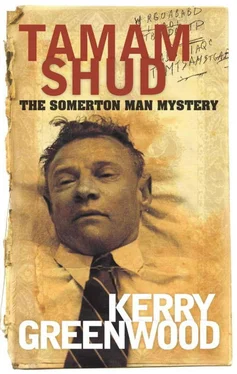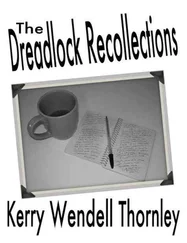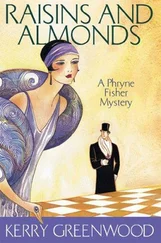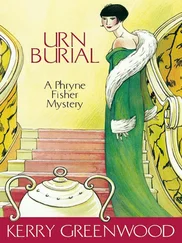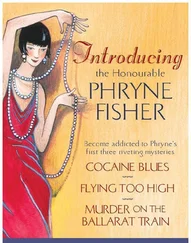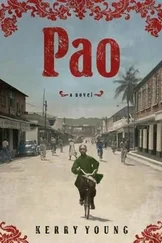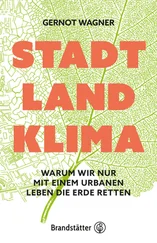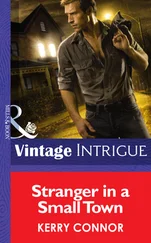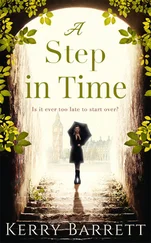Kerry Greenwood - Tamam Shud
Здесь есть возможность читать онлайн «Kerry Greenwood - Tamam Shud» весь текст электронной книги совершенно бесплатно (целиком полную версию без сокращений). В некоторых случаях можно слушать аудио, скачать через торрент в формате fb2 и присутствует краткое содержание. Город: Sydney, Год выпуска: 2012, ISBN: 2012, Издательство: NewSouth, Жанр: Детектив, Прочая документальная литература, на английском языке. Описание произведения, (предисловие) а так же отзывы посетителей доступны на портале библиотеки ЛибКат.
- Название:Tamam Shud
- Автор:
- Издательство:NewSouth
- Жанр:
- Год:2012
- Город:Sydney
- ISBN:978-1-742-23350-5
- Рейтинг книги:3 / 5. Голосов: 1
-
Избранное:Добавить в избранное
- Отзывы:
-
Ваша оценка:
- 60
- 1
- 2
- 3
- 4
- 5
Tamam Shud: краткое содержание, описание и аннотация
Предлагаем к чтению аннотацию, описание, краткое содержание или предисловие (зависит от того, что написал сам автор книги «Tamam Shud»). Если вы не нашли необходимую информацию о книге — напишите в комментариях, мы постараемся отыскать её.
Tamam Shud — читать онлайн бесплатно полную книгу (весь текст) целиком
Ниже представлен текст книги, разбитый по страницам. Система сохранения места последней прочитанной страницы, позволяет с удобством читать онлайн бесплатно книгу «Tamam Shud», без необходимости каждый раз заново искать на чём Вы остановились. Поставьте закладку, и сможете в любой момент перейти на страницу, на которой закончили чтение.
Интервал:
Закладка:
I wore jeans, boots, gloves, a heavy flannelette shirt of my father’s and a straw hat – the last to general amusement. No one wore hats then. Thus protected from the weather, I motored along the row with my name on it, finding grapes where they hid themselves under the leaves, listening to the birds singing and the boss swearing and my fellow workers yelling tidbits of information across the rows. I had no partner. I was there for isolation and silence and, of course, money. I watched with great pleasure as they emptied my bag into the hopper, wrote down the weight and freed me to go back to the shed, take a cold shower, make myself some sort of dinner and sleep like a log.
I would do this for two weeks or as long as the vintage lasted. I spent nothing because there was nothing to spend anything on. I did develop a dislike for grapes and my clipping hand still aches a little at the memory. But it was all worth it when the van deposited me once more at Central Station and I went into the Railway Hotel for my one night of luxury. Near the station I purchased a pumice stone and soap. I always bought exotic scents; my favourite was called Rose de Gueldy. I also bought Pears shampoo for my hair, which was stiff with sweat and grime. I wouldn’t have let me into a respectable hotel but the Adelaide hotels were used to pickers. And in my pack I had night clothes, slippers, cosmetics and proper garments in which I would not mind being seen.
I would ascend to my room, lock the door, and run a huge bath, as hot as I could bear. Then I would peel off my frightful clothes and immerse myself, head and all, and start scrubbing. Sometimes I would have to drain and re-run the bath twice before I got back to my usual skin tone. Then I would wrap myself in hotel towels and lie down for a nap on my clean bed with sheets. Removing all that grime was exhausting. I felt as the sailors must have felt in The Weary Whaling Grounds as sung by Danny Spooner.
The weather’s rough and the winds do blow
And there’s little comfort here;
I’d sooner be snug in a Deptford pub
A-drinkin’ of strong beer.
After that it was time to put on my clean clothes and sandals and wander out into Central Market to see what was available. I would have been eating bread and tinned soup, so now I was avid for real tastes, real fruits – except grapes – and above all, meat. Central Market was a good place for a carnivore in those days. There was a pub that served steaks so big that they overlapped the edges of the plate, the first chargrill I ever tasted.
I used to buy a steak and a glass of red wine and eat my way through that steak, nibbling and nibbling until I had absorbed it all. Every meaty morsel. Every proteinladen bite. Then I would stagger back to the hotel, have another bath out of sheer swank, and next morning eat the hotel breakfast and get on the train for Melbourne.
That used to be all I would see of Adelaide, although later, when I had friends in the town, I used to go there for fun, because I had made enough money folk singing and cleaning houses to tide me over the holidays. That first brief glimpse had told me Adelaide was a big, sleepy country town, not unpleasant or unfriendly. But my dad’s stories told me different. Adelaide, he said, had a dark underside. Children vanished there. Strange things happened. He always told me to be very careful in Adelaide.
The first thing a native of Adelaide tells you proudly is that Adelaide was built without convicts. All volunteers, free settlers, not like your grimy crime-ridden hovels. It’s named after a queen. (No sniggering there at the back, please). It’s clean, planned and bright, with Colonel Light on his pedestal in the middle, supervising the activities of the devout citizenry. It’s the City of Churches.
And yet. Colonel Light’s statue is not in the middle of the city – he’s at the top of it, in North Adelaide. The city has no heart. The reason why it is a city of churches is not that the citizenry is necessarily devout but that, historically, Adelaide was settled by large numbers of protestant sects, who would arrive, build a church, have a schism and then build another church down the road, within convenient sneering distance of the unenlightened original. It’s like the joke about the Welsh Robinson Crusoe, who is finally found and exhibits the town he has built out of bamboo to his rescuers. There is the town hall, the bakery, the fish shop and two chapels. ‘Why two chapels?’ asks the rescuer (obviously English or he wouldn’t need to ask). ‘That’s the one I don’t go to,’ says Taffy the Shipwrecked.
And so it was in Adelaide. There are the beautiful main churches and, in the back streets, there are the rusty tin sheds of the others. This, oddly enough, made it a progressive city. Protestant progressives of the time wanted to free the slaves and bring about peace on earth and good will to all men, even if they were female. Women in South Australia got the vote in 1894, including indigenous women, at a time when Aborigines were not counted in the census and did not have the vote anywhere else. South Australians also invented a very sensible system of land holdings called the Torrens System, which was adopted all over Australia and made life as an articled clerk bearable. (Old law title searches were murder and got parchment fragments all over your clothes. Until you’ve tried to get powdered vellum out of a white shirt you haven’t laundered.) Anything that has been tried out in Adelaide and accepted, from legislative changes to new salad dressings of a major fast-food chain, will be acceptable to the rest of the country. If it fails in Adelaide, it will fail in the rest of Australia.
Adelaide elected Don Dunstan, for God’s sake.
What a man! Others have spoken lovingly of his iconic pink shorts. His tendency to wear a Greek tunic while playing the piano. His easy familiarity with people who were not white and protestant, partly because of his birth in Fiji. His comfort with his own sexuality. His defeat and his death were tragic and heroic. Not to mention a few minor law reforms, like the appointment of Australians as governor, first Mark Oliphant and then Doug Nicholls, who was also the first indigenous governor; the first woman appointed to the supreme court, Roma Mitchell; the declaration of native title; the extension of shopping hours; and the decriminalisation of homosexuality. Not to mention the creation of Rundle Mall, his encouragement of good food, arts, music and festivals and Don Dunstan’s Cookbook , which contains an excellent chicken curry. My partner David is related to Adelaidian Dunstans, and desperately hopes that he might be close kin to the fabled and fabulous Don.
Picture the scene. I am sitting on a purple towel on Glenelg Beach with my transvestite friend Vic, who is being a lady today, hence the purple towel and the fetching lilac dress with frills. I am wearing jeans and a T-shirt as usual. We have a bottle of red wine, of which Vic is drinking the most because, as she said, ‘If the prophet who declared that Adelaide is about to be wiped out by a tsunami this afternoon spoke the truth, I want to get in a few last drinks before someone calls “Time”.’ The prophet had told us that God would wipe out Adelaide because it was a wicked city, similar to Sodom or possibly Gomorrah, and it would all be our fault for our sinful ways.
Although I never met anyone who actually said they believed him, people were nervous. Some of the Hindley Street shops had clearance sales in the middle of summer and some people were said to have sold their goods and fled to the hills to watch the sea take the city from a safe vantage point. In Adelaide it is always difficult to sort out the irony from the anxiety. But still.
So, on 20 January 1976, Vic and I were getting progressively oiled and not a little sunburnt as we waited for the end. There were lots of people there with us. They too were having picnics (though because Vic was on one of her all-alcohol diets, we had forgotten about food) and time ticked on. I was explaining to Vic that apocalypse was a Greek word that just meant revelation, not disaster, when the time for the tidal wave arrived.
Читать дальшеИнтервал:
Закладка:
Похожие книги на «Tamam Shud»
Представляем Вашему вниманию похожие книги на «Tamam Shud» списком для выбора. Мы отобрали схожую по названию и смыслу литературу в надежде предоставить читателям больше вариантов отыскать новые, интересные, ещё непрочитанные произведения.
Обсуждение, отзывы о книге «Tamam Shud» и просто собственные мнения читателей. Оставьте ваши комментарии, напишите, что Вы думаете о произведении, его смысле или главных героях. Укажите что конкретно понравилось, а что нет, и почему Вы так считаете.
